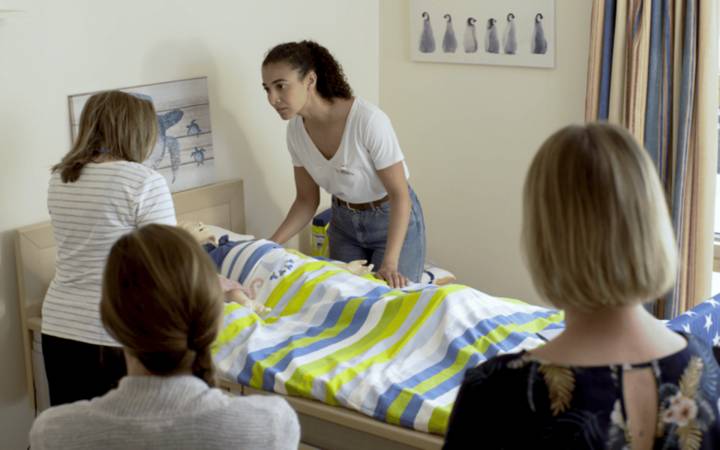Healthcare experts from Kingston University and St George's, University of London reflect on the challenges facing the NHS at 70
Posted Thursday 5 July 2018

Mortality rates among people with learning disabilities should be a wake-up call for all health professionals, according to a leading nursing expert from Kingston University and St George's, University of London. Daniel Marsden, senior lecturer in learning disability nursing, said addressing these kind of health inequalities was one of the key challenges facing the NHS as it turned 70.
"The national mortality rate for people with learning disabilities was published in May, and what that said was people with learning disabilities die twenty years younger than you or I," Mr Marsden said. "That should be a wake-up call to professionals in all services. It's something we all need to be thinking about and looking at - to ask ourselves whether we find that acceptable or not."
He was speaking alongside colleagues from the Faculty of Health, Social Care and Education, run jointly by Kingston and St George's, who highlighted a number of other fundamental issues the service needed to navigate as it looked to the future.
Kingston and St George's deputy head of nursing Karen Elcock spotlighted meeting the needs of the country's growing and ageing population as a key challenge.
"I think the biggest challenge is around numbers – numbers in relation to patient population," Ms Elcock said. "We are seeing a significant increase in the population in the UK which means a greater demand on services. That's coupled with the fact that people are living much longer. We have huge numbers of people who are over 80 and increasing numbers of people over 100. I think the blurring of the healthcare needs that people have with social care needs because of the aging population is posing a real challenge now and will do so even more in the future. "
Meanwhile Paul Newcombe, course leader for adult nursing, said changing lifestyle choices were contributing to increasing demand on services and drew attention to the need to involve people in managing their own health, alongside health professionals.
"People aren't necessarily living the most healthy lifestyles, so things around diet, exercise, smoking, alcohol are increasing pressures on the NHS," Mr Newcombe said. "I think there's a real need to personalise healthcare, so that term population health is really important, using the community to support each other – as well as healthcare professionals – to take responsibility for their health."
- Find out more about studying undergraduate and postgraduate courses in the Faculty of Health, Social Care and Education
Contact us
General enquiries:
Journalists only:
- Communications team
Tel: +44 (0)20 8417 3034
Email us



